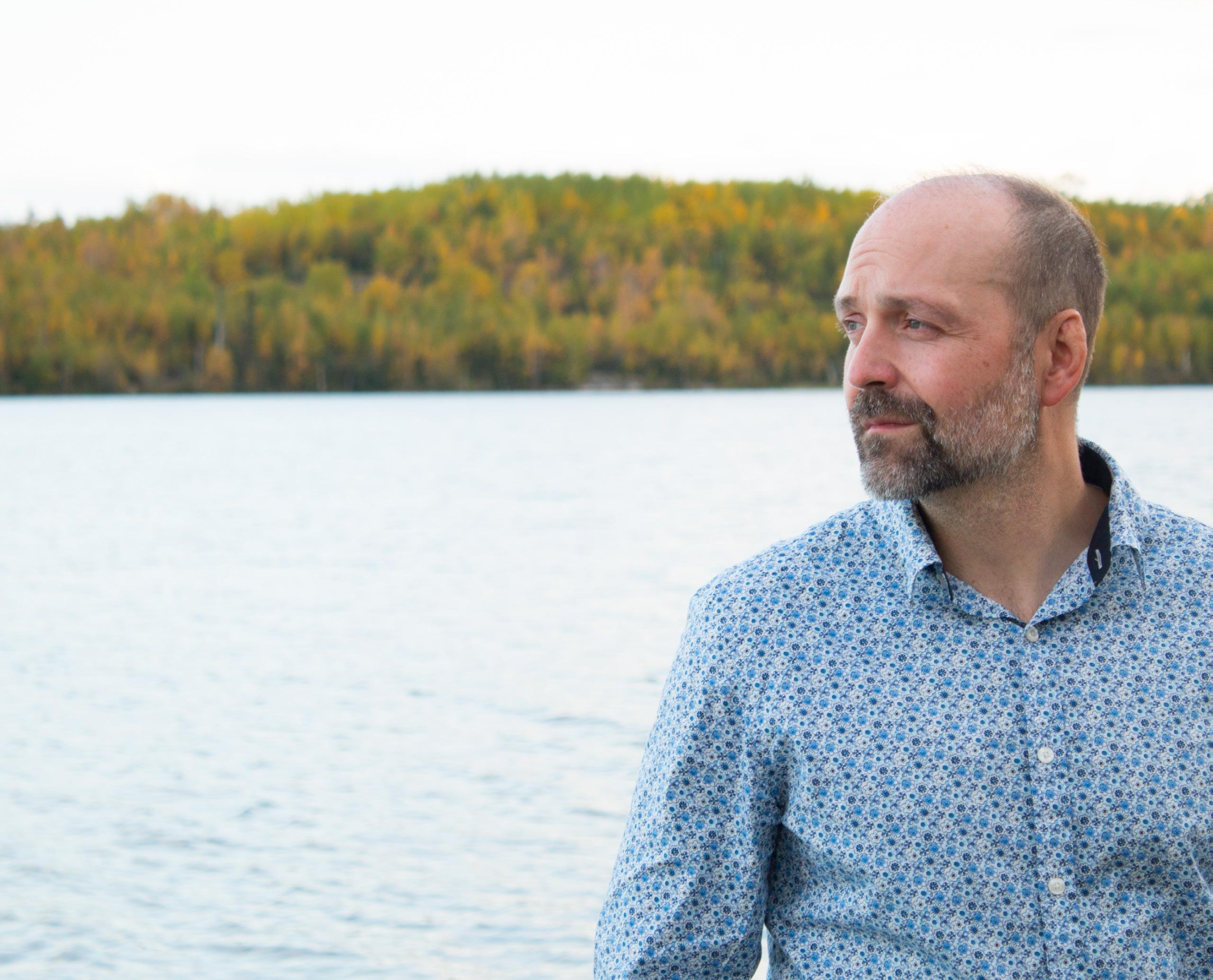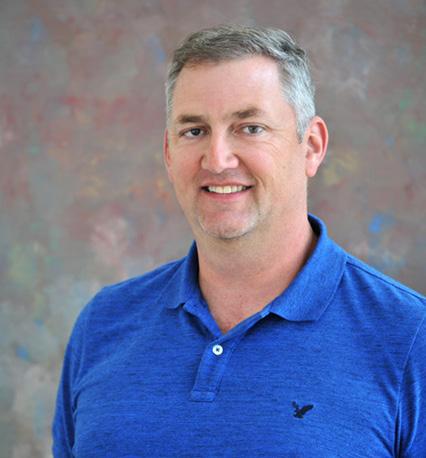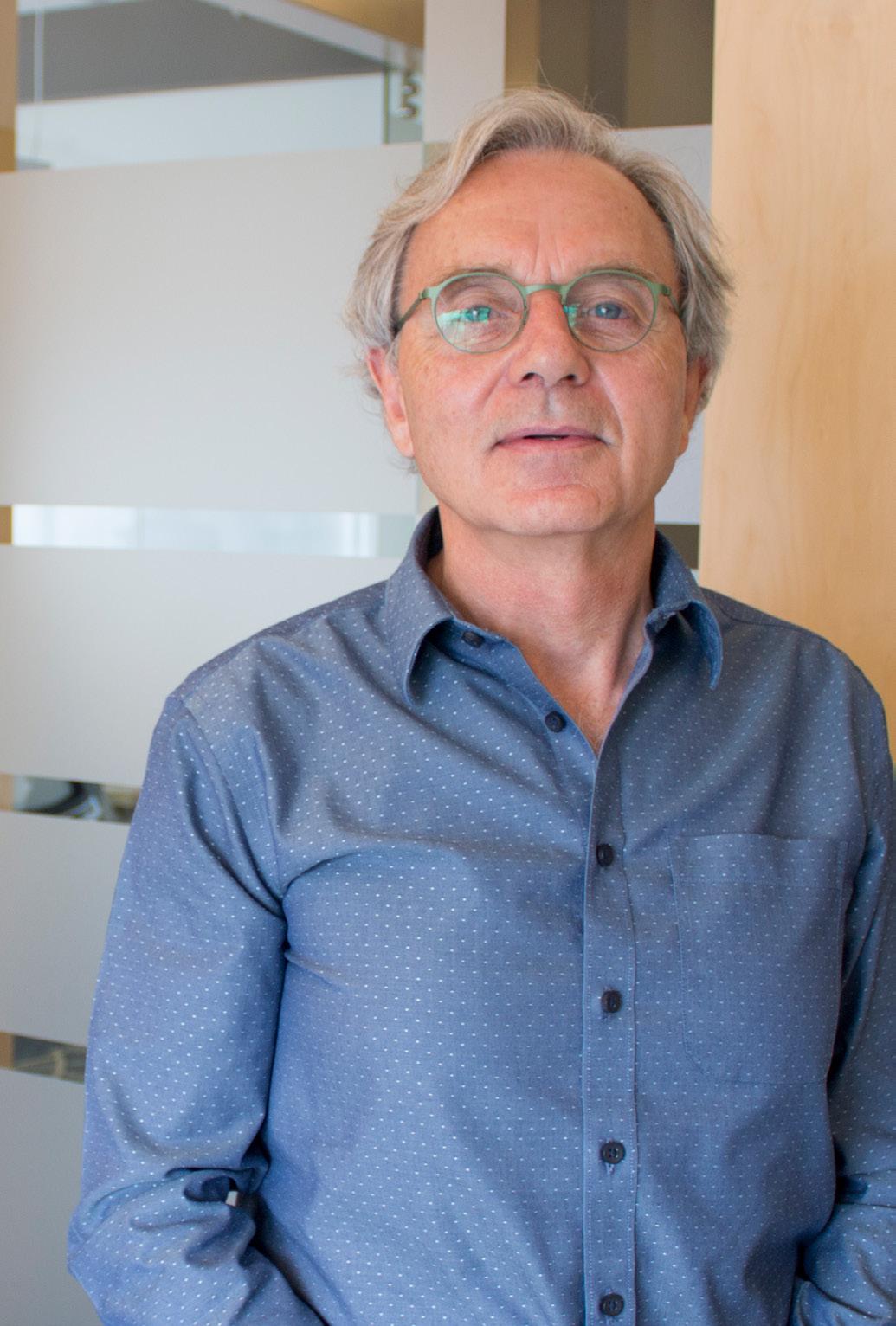
6 minute read
PUSHED TO THE FRINGES
Three physicians who support those living with substance use disorders and homelessness discuss the added impact of COVID-19
By Maria Ryhorski
As COVID-19 swept the country over the past 19 months, an already marginalized group of people experienced even greater challenges than most in Saskatchewan. Those experiencing addictions and homelessness saw many community supports end abruptly, leaving some people, quite literally, out in the cold.
Three physicians in Saskatchewan are acutely aware of the heightened impact of the pandemic on individuals who live on the fringes of society. From the perspective of Dr. Sean Groves, family physician in La Ronge and head of the Opioid Agonist Therapy Program, COVID-19 has exposed cracks in a system where those living with addictions and homelessness were already underserved. As COVID-19 hit Saskatchewan full force, detox programs – where many of the patients Dr. Groves serves get a chance to stop, reflect, and take the first steps toward recovery – were one of many community supports to be shut down.

Dr. Sean Groves
As a result, he says, “We saw a lot of revolving door addictions medicine happening, where people were just consistently in and out with addictions issues. And that exacerbated mental health issues that a lot of marginalized populations deal with.”
In an effort to curb the spread of COVID-19, care moved to a largely virtual model and this lack of face-to-face contact has further inhibited treatment and recovery of those with mental health issues.
“That face-to-face connection, in person, can be really important to developing trust, particularly for people who’ve dealt with lots of trauma in their lives,” noted Dr. Groves. “And so, the ability for a mental health care provider to provide trauma-informed care over the telephone in an unstably housed population is really challenging.”
Dr. Morris Markentin provides care at the Saskatoon Community Clinic where he serves an urban population who face similar challenges . He observed that some of his patients had difficulty accessing care at all because they did not have access to a cellphone for virtual appointments.

Dr. Morris Markentin
“Everything moved to virtual,” Dr. Markentin said. “If you don’t have access to wifi, you’re not connecting. You can’t access the services. So a lot of our clients were left out of a lot of the services they used to have. And so there were a fair amount of relapses and a fair amount of other issues related to, not just mental health, but addictions as well.”
Dr. Peter Butt, addictions medicine consultant with the Saskatchewan Health Authority, points out that the costs of this pandemic are high.
“The real challenge here is that the people who are pushed to the margins of society don’t have access to the secure housing, don’t have access to the community-based organizations, don’t have the same access to the health-care services that they had pre-pandemic,” he said. “And that’s certainly contributing to the increased fatality rate in addition to no disruption in the supply.”

Dr. Peter Butt
Despite border and public health restrictions, there was not an interruption to the availability of illicit substances, according to Dr. Butt.
“Frequently we’re dealing with people that are socially isolated, they’re more anxious, they’re feeling insecure, they’re worried. And all of these things combined drive the chemical coping. So they may not have had a significant problem pre-pandemic, but what we saw was a significant escalation during the pandemic.”
All three physicians are solution focused and have worked with their teams to support those in their care to the best of their ability while still keeping their staff safe.
At Dr. Markentin’s clinic, if patients needed care in the clinic but didn’t pass the COVID-19 screening, care providers put on PPE and went outside to speak with them, and help find a way for them to access the care they needed. Additionally, they allowed clinic phones to be used by those without a phone or a computer, so they could access other virtual care services such as specialist appointments.
Dr. Butt highlights positive work by the Saskatchewan Health Authority in response to the need for people with substance use disorders to be supported when they are required to self-isolate.
“We have these assistance-for-self-isolation shelters,” he said. “These shelters have protocols where nurses, primarily, and physicians, are able to provide either detox or a substitution approach to their substance, provide some level of monitoring and harm reduction interventions – they’ll certainly escalate it toward treatment if that’s what the individual wants, but the primary goal is isolation for two weeks. So they’re really supporting them in hotels with food and accommodation and mitigating some of the difficulties that they have because of their health problems.”
In La Ronge, Dr. Groves and the local health care team worked hard to provide addictions management and detox in an acute setting where patients could at least be kept safe, in the absence of better options. They also supported the local assisted self-isolation sites.
Dr. Groves emphasized the critical impact of local leadership when it came to managing the COVID-19 crisis successfully within the community. For community leadership to step up and promote the importance of public health measures was invaluable because they already had the trust of the community.
“Right now in society we have a bit of a mistrust of government in general,” Dr. Groves noted. “And I think the best way to overcome that is through relationships with people in positions of power … It’s not good enough to put out the science and to put out the educational information. It also has to be done in a way that’s respectful and built on relationships. And I think that’s been one of the strengths of smaller communities and, in particular, communities on reserve.”
Still, Dr. Groves is frustrated with the inadequacy of system resources for the most vulnerable in his community.
“The fact that we’re still seeing patients in Saskatchewan die regularly as a direct consequence of addictions-related overdose, trauma, infectious diseases, and suicide is a clear signal that addictions care is not considered a priority in our health system, despite the massive acute care costs, as well as the chronic disease, mental health and societal cost, that it generates,” said Dr. Groves. “I would love to see people in positions of power with the SHA, as well as the Ministry of Health and government, recognize that addiction is not a choice or a lifestyle, but a devastating coping response to what is often severe trauma experienced during early childhood - and begin prioritizing addictions care as an essential component of a good health-care system, rather than just being a nice add-on.”
Still, he admires the resilience of the population that he serves and how they continue to hold each other up even in the most difficult circumstances. “COVID is just one among the many things that create barriers for people who deal with poverty and addictions and mental health issues and unstable housing,” he said. “It’s always impressive to me to see how well people who are in those situations can band together. It’s a real inspiration actually. It’s one of the reasons I like working in that area of medicine. It reminds me how lucky I am some days and also reminds me how I could maybe shift my own perspectives and my own ways of living to maybe a simpler, more person-focused way of life.”◆










